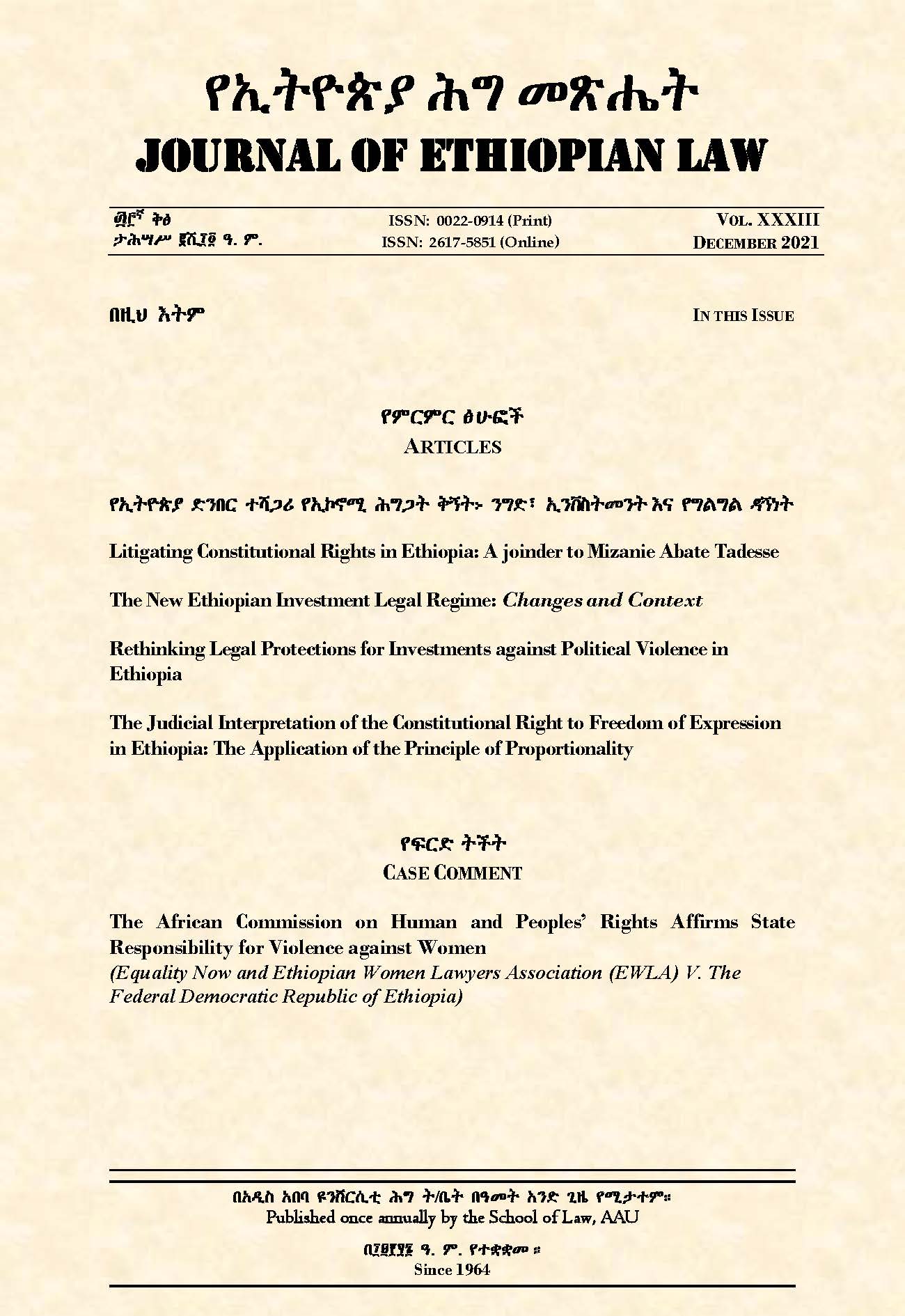Litigating Constitutional Rights in Ethiopia: A Joinder to Mizanie Abate Tadesse
Abstract
Amid Ethiopia’s unfolding political volatility, investors face significant risks of investment losses due to political violence, including riots, violent protests, and similar incidents. This paper, through a doctrinal analysis of relevant domestic legislation, treaty provisions, arbitral decisions, and scholarly literature, evaluates the adequacy of legal protections for investments under domestic laws and Bilateral Investment Treaties (BITs). The study reveals a sharp disparity in legal protections afforded to foreign and domestic investors against the risks of political violence. Notably, foreign investors benefit from compensation mechanisms under BITs, including Full Protection and Security (FPS) clauses and War Clauses, whereas domestic investors lack comparable remedies, leading to discriminatory treatment despite facing identical risks. Of course, investors might seek remedies via tort claims against individual wrongdoers and, theoretically, through constitutional tort actions, although the latter have yet to receive practical recognition. However, these mechanisms are inadequate to address the multifaceted challenges of investment losses caused by political violence. Furthermore, some BITs provide extensive protections for foreign investments against such risks without exceptions, broadening Ethiopia’s obligations during times of political uncertainty. To address this imbalance, the study recommends legal reforms, including enacting domestic investment laws with comprehensive compensation mechanisms and renegotiating BITs to incorporate emergency clauses. The article further highlights the importance of institutional reforms, including implementing preventive strategies, strengthening law enforcement capabilities, promoting political dialogue, and expanding investment insurance coverage to include political violence, all of which are essential for reducing investment risks and enhancing investor confidence.


